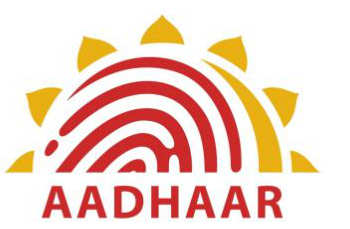A notice issued by the Supreme Court on Thursday (October 8, 2015) said a Constitution bench will hear on October 14 a batch of applications, including one by the central government seeking “clarification / modification” of its August 11 order restricting the use of Aadhaar card for availing benefits under social welfare schemes including as an identity proof.
 The apex court in a brief notice issued on Thursday evening said the constitution bench will take up the petitions challenging the validity of the Aadhaar card scheme on the grounds that it violated the right to privacy.
The apex court in a brief notice issued on Thursday evening said the constitution bench will take up the petitions challenging the validity of the Aadhaar card scheme on the grounds that it violated the right to privacy.
The notice issued by the apex court said: “Take notice that the matter above mentioned (Justice K.S. Puttaswamy (retd) and others) will be listed on 14.10.2015 at 2 p.m. before the constitution bench.”
Earlier in the day, the central government urged the apex court to constitute a constitution bench to hear its plea to allow the use of Aadhaar card for the disbursal of benefits under various social welfare schemes and also in banking and financial transactions.
As Attorney General Mukul Rohatgi asked the bench headed by Chief Justice H.L. Dattu to constitute a larger bench to hear their plea for “clarification / modification” of the August 11 order, the court said it was “very difficult” to constitute a larger bench for an early hearing. Chief Justice Dattu said it was difficult to spare nine judges to hear the plea as it would adversely affect the working of other courts. He also said he would consider the plea by Friday evening.
The Attorney General mentioned the matter before the Chief Justice of India, after the Supreme Court bench of Justice J. Chelameswar, Justice S.A. Bobde and Justice C. Nagappan on Wednesday (October 7, 2015) referred a batch of applications, by the government and other agencies, seeking use of Aadhaar card on a voluntary basis, to a larger bench as it refused to relax its August 11 interim order (see: Supreme Court refuses to modify restrictions on use of Aadhar cards, refers to larger bench).
The apex court had restricted the use of Aadhaar card for distribution of foodgrain under PDS, supply of kerosene oil and LPG only. By its August 11 order, the court referred to a larger bench the question whether right to privacy was a fundamental right — an issue rooted in the conflicting judgments of the apex court.
The order referring the matter to a larger bench had come on a batch of petitions including by the former judge of Karnataka High Court Justice K.S. Puttaswamy, who contended that the biometric data and iris scan that was being collected for the issuance of Aadhaar card violated the fundamental right to privacy of the citizens as personal data was not protected, and was vulnerable to exposure and misuse.
The apex court by its 1954 judgment by a bench of eight judges and later in 1964 by a bench of six judges had held that the right to privacy was not a fundamental right but from 1975 onwards, the smaller two or three judges’ bench elevated the right to privacy as a fundamental right. It was on this ground that the issue of right to privacy was referred to a larger bench by the aforesaid 11 August order in the Aadhar case.

